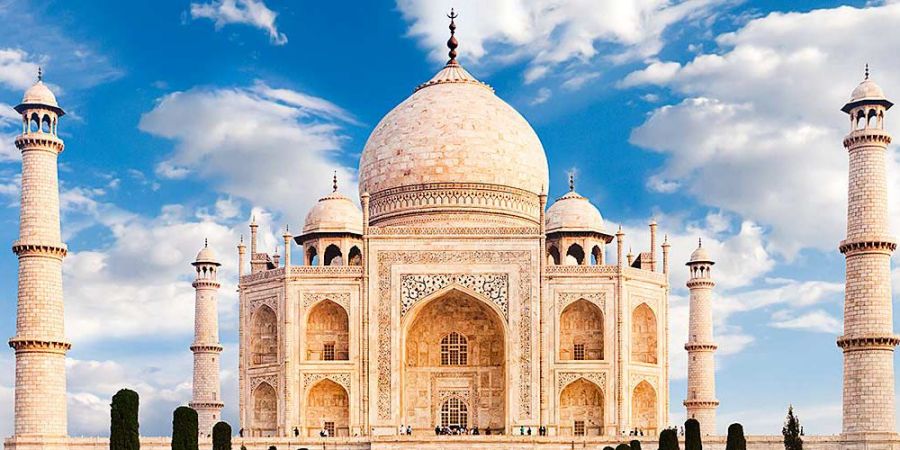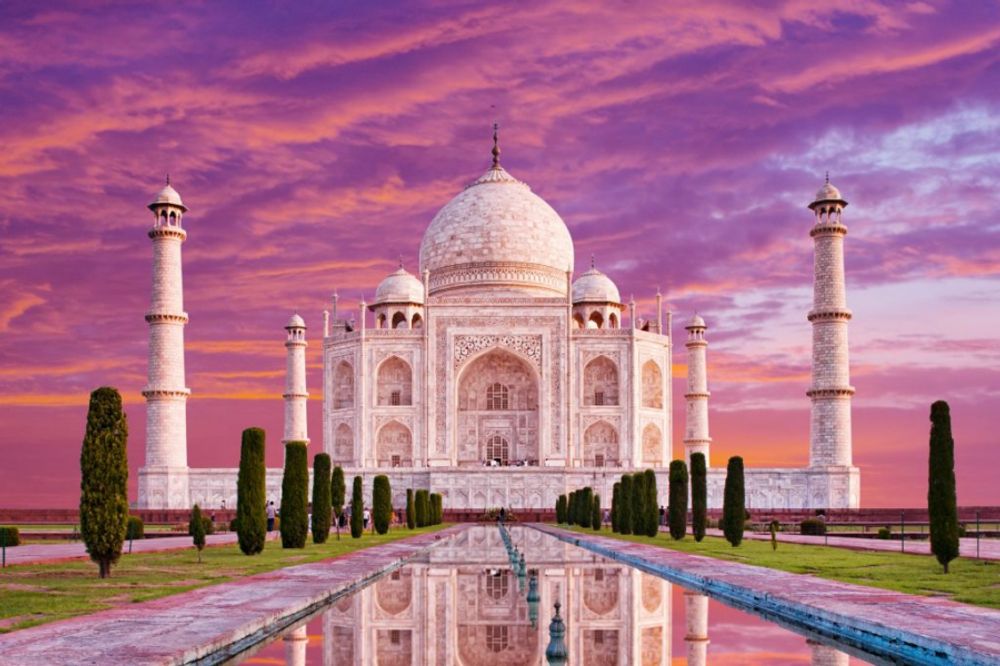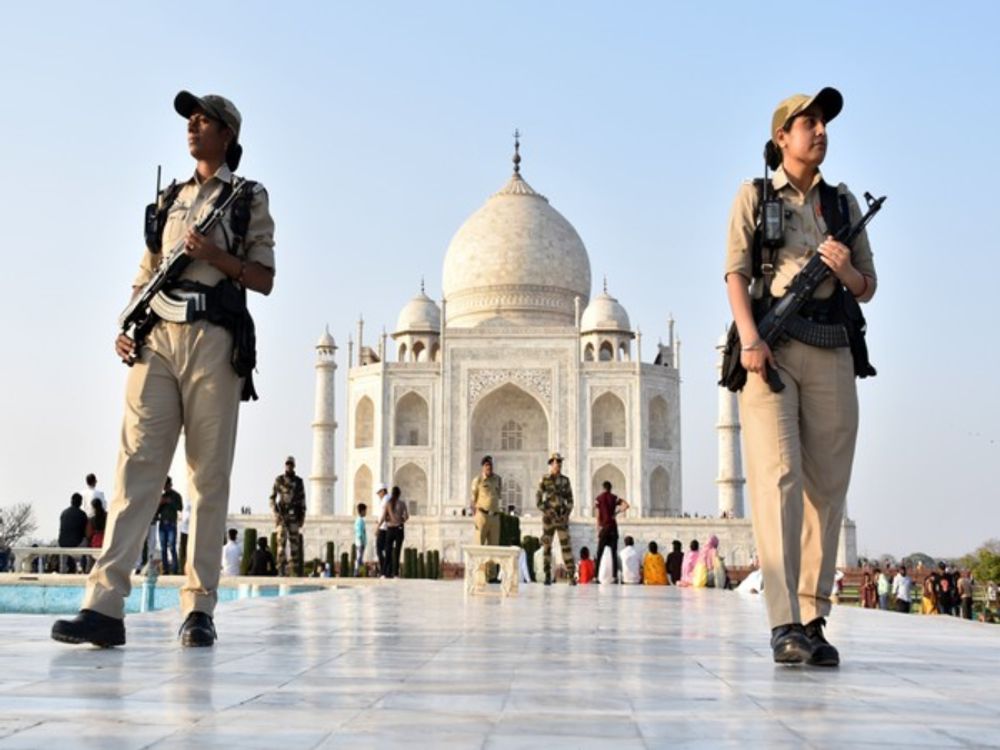

Description :
Taj Mahal is also spelled Taj Mahal, a mausoleum complex in Agra, Uttar Pradesh, northern India. The Taj Mahal commemorates his wife Mumtaz Mahal ("Chosen One of the Palace") who died in childbirth in 1631 and was inseparable consort of the emperor since they married in 1631. It was built by Mughal Emperor Shah Jahan (r. 1628–58). 1612. India's most famous and famous building, located in the eastern part of the city, on the south (right) bank of the Yamuna (Jumna) River. The Agra Fort (Red Fort), also on the right bank of the Yamuna River, is about a mile west of the Taj Mahal. With its harmonious proportions and fluid incorporation of decorative elements, the Taj Mahal is a supreme example of Mughal architecture that blends Indian, Persian and Islamic styles. Other attractions include two mosque buildings (symmetrically placed on either side of the mausoleum), beautiful gardens and a museum. The Taj Mahal is one of the world's most beautiful structural compositions and one of the world's most famous monuments, attracting millions of tourists each year. The complex was declared a UNESCO World Heritage Site in 1983.

History:
The plans for the complex have been attributed to various architects of the time, but the principal architect was probably Ustad Aḥmad Lahawrī, a Persian-Indian. His five main elements of the complex - the main gate, the gardens, the mosque, the jaab (literally 'answer', a building reflecting the mosque) and the mausoleum (including four minarets) - were conceived as a united entity according to principles. was designed. A practice of Mughal architecture that did not allow subsequent additions or alterations. Construction began around 1632. Over 20,000 workers were employed from India, Persia, the Ottoman Empire and Europe, and he completed the mausoleum itself by about 1638-39. The annex was completed by him in 1643 and the decoration work continued until at least 1647. In total it took him 22 years to build the 17-acre complex. According to tradition, Shah Jahan originally intended to build another mausoleum across the river to house his remains. The structure was supposed to be made of black marble and connected to the Taj Mahal by a bridge. However, he was banished by his son Aurangzeb in 1658 and imprisoned in the Agra Fort for the rest of his life.
Architecture:
The actual mausoleum sits in the center of a broad base seven meters high and is made of white marble that reflects its hues according to the intensity of the sun or moonlight. It has four nearly identical façades, each with a wide central arch that rises to 33 meters at the top and chamfered (sloping) corners with smaller arches. The majestic central dome, which rises 73 meters at the top of the finials, is surrounded by four smaller domes. The acoustics in the main dome echo each flute note five times. The interior of the mausoleum is arranged around an octagonal marble chamber decorated with bas-reliefs and semi-precious stones (pietra dura). Inside is Mumtaz his mahal and a cenotaph of Shah Jahan. These false tombs are surrounded by finely crafted filigree marble walls. At the level of the garden below the tomb is a real sarcophagus. At the four corners of the square base rise gracefully the graceful minarets from the central building.



